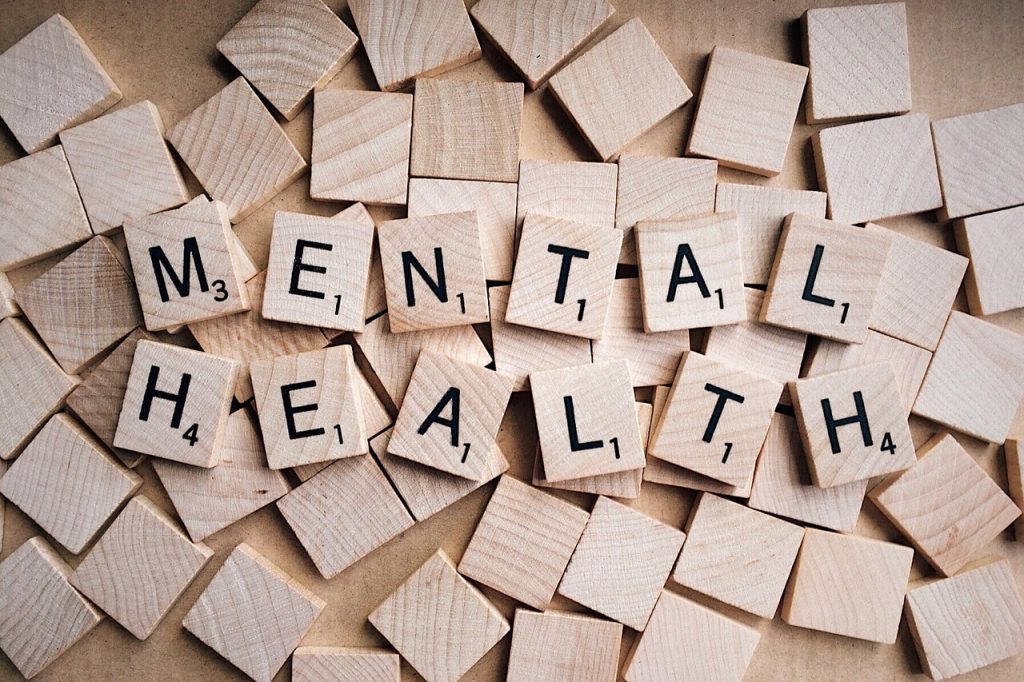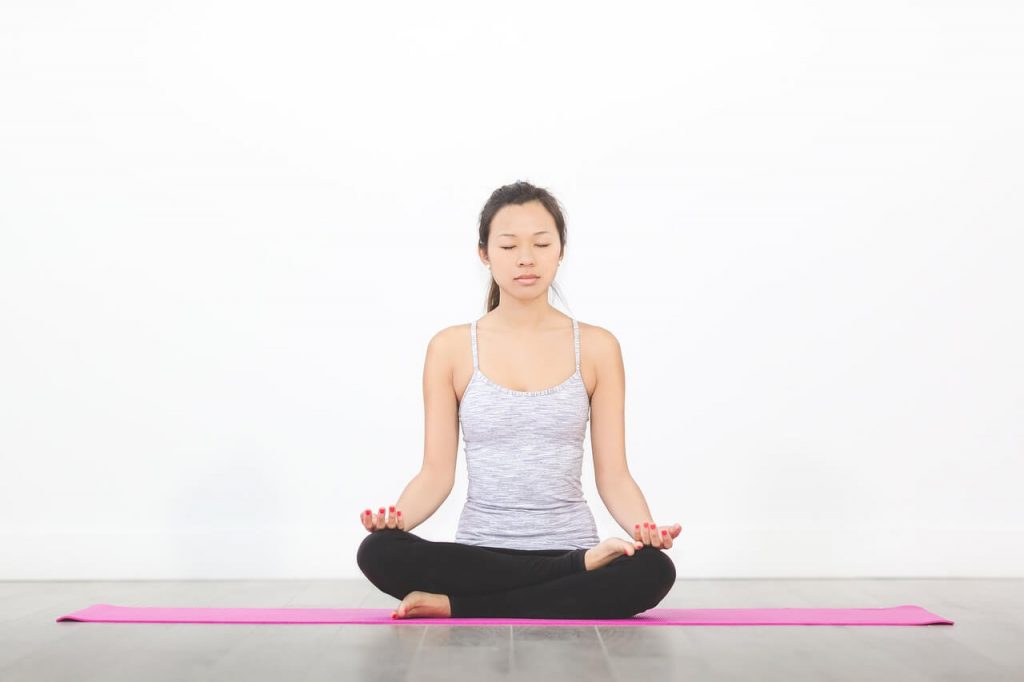Transform Your Life With Gratitude
Who of us can say they are truly happy? – please raise your hand. Apparently, the answer is not that many of us.A recent poll reported that only 33% of Americans claimed to be happy in theyear2017 (Harris Poll Survey of Happiness). It seems that out of all of us, Students are especially struggling, which is surprising as most of us would associate college years with being a time of carefree abandon.However, the facts don’t stack up. In 2018 Yale University launched a new course in being happy. In only the first three days, it attracted staggering 1,200 students.That’s a quarter of all undergraduates.
What is surprising is that if even students need help to be happy, when they have less of the pressures that we commonly associate with mature, stressful lives, then perhaps all of us need help appreciating what we have. So, what is causing us to feel this way when modern advances have solved so many problems? Shouldn’t we really be happy and grateful for what we have?
The answer lies partly in how our brains are constructed. Our minds are wired to be biased towards new things and experiences, rather than the old and familiar.What does this mean? For example, the euphoria you experience after getting something new, like maybe a pair of shoes or a higher paid job, is undeniable, but rarely seems to last.It’s easy to confuse the feeling you get when you purchase material goods with being happy in a more long-term sense.We forget to acknowledge what we already have and could do with remembering that the path to contentment isn’t always through physical gratification or material acquisitions, but rather through thankfulness and the power of gratitude.
This may all sound obvious to some; be thankful and suddenly you stop wanting new things and become happy. However,is it ever that easy? Studies have found that being grateful can improve your life and lead to many new exciting opportunities.
This article will look at how practicing gratitude in our daily lives can lead to profound changes in our emotional, physical and psychological well-being, leading to that elusive happiness that the students were so desperately seeking
What is Gratitude?
Linguistically, gratitude is found across many languages and cultures. It originates from the Latin word ‘gratia’, which means grace, graciousness, or gratefulness. However, we don’t all experience or perceive it in the same way. Essentially, it is an emotion that helps us express appreciation and thankfulness. It is one of the most underestimated of all our emotions. Yet many contend is the cornerstone of living a happy and fulfilled life. Most commonly associated with saying thank you for receiving a gift, an act of gratitude is unconditional and selfless – you don’t do it to get a favor in return.
Positive Psychology
In the 1990’s a new field of psychology emerged called ‘Positive Psychology’, which studied positive emotions and began to link gratitude with greater happiness. Robert Emmons, one of the leading experts on gratitude, identified two key components: Firstly, he says that gratitude is a statement of goodness.This means that we acknowledge and affirm all that is good in our world. Through gratitude, we identify gifts and benefits that have enriched our life in some way. Importantly it does not require us to block out the things that aren’t going as well. After all, life is not perfect. Instead, gratitude creates a space that allows us to acknowledge the things that are good without disregarding what’s difficult or sad. It provides us with a foundation of reassurance that there is good around us, a belief that during these modern times can be in short supply.
The second component, Emmons says, is finding the source of the goodness. We identify that goodness comes from outside of ourselves in the form of a present or a good deed or even a stroke of luck. It is not something that we ourselves have done that warrants thankfulness. Moreover, it’s about what others bring to our lives; whether they are friends, family, work colleagues, mother nature, or even a higher being if you are spiritual.By humbly accepting the value of the benefits that others bring into our lives, we start to connect with something that is much bigger.

How does Gratitude work?
There are two main factors involved: catharsis and reciprocity.The former means a release of intense emotions that leave you feeling better. For instance, you may cry after an argument with a close friend, but this act of release lessens the tension you feel. In a similar way, gratitude helps us release toxic emotions like envy, frustration, and dissatisfaction that act like blocks to us growing.Letting go of these negative feelings will leave you feeling lighter, happier and more energetic.
Reciprocity,on the other hand, is concerned with an exchange.Through gratitude, we exchange positive feelings. When we say thank you, or smile at someone, that positive emotion is transferred and potentially paid forward.The positivity is paid forward. The benefit is shared and transferred to others, who themselves will share it, and so on. This is valuable, but for those seeking a more direct benefit, perhaps the virtue will come full circle, and you will be faced with more grateful, positive people yourself.

Benefits
Life doesn’t always go the way we want; the job promotion goes to someone else, we miss a flight due to bad traffic, elderly parents need more care.It’s easy to allow ourselves to wallow in self-pity and let negative feelings like anger and frustration to take over us.Feeling ‘poor me’ rarely helps improve the situation, but instead only leads to more negativity. However, research shows that if we swap our negative feelings for gratefulness for the things we do have, profound changes can take place in our lives.
Below are six benefits you can expect after practicing gratitude regularly:
1. Physical Health
Studies have shown that grateful people have more immune protecting blood cells, which means they suffer fewer coughs and colds. They are more likely to run for a bus or a train without getting out of breath as they are healthier and more likely to exercise.Being grateful can also reduce aches and pains in the body and lower blood pressure. If that’s not enough, gratitude can help you sleep deeper and longer. No need for a cup of coffee in the morning anymore as you wake up refreshed and ready to start the day feeling good.
2. Mental Health

Positivity creates more positivity. When we consciously identify what is good in our lives, we start to connect with positive emotions at a more meaningful level. This helps us feel more present in our lives, more alert to make choices, less depressed and more energetic.Research conducted at the University of California found that individuals who were asked to keep a journal of positive experiences reported feeling more happy and optimistic about life than individuals who were asked to focus on recording only negative things.
3. Self-esteem
One of the worst feelings is the inability to genuinely celebrate someone else’s success without feeling a pinch of envy. Self-esteem grows when we recognize the value of what we have already in our life.It is easier for us to break free from the negative cycle of envy and resentment.When your best friend wins the lottery, rather than feeling bitterness, practicing gratitude will help you appreciate their good luck and share in the joy. Likewise, other toxic emotions like frustration and regret are lessened. Studies have shown that grateful people are less likely to say they are materialistic or experience envy.
4. Resilience
Connecting with a higher level of positivity through gratefulness can make us more emotionally resilient when we are faced with trauma or adversity. The Journal of Personality and Social Psychology published a study in 2013 that discovered that individuals displayed great resilience after the 9/11 Terrorist attack if they had a grateful temperament.By focusing on abundance,we fortify ourselves against falling into negative emotional patterns when we go through difficult times.
5. Friendship

Grateful people experience closer friendships.One reason for this might be that grateful people are more likely to help others and this help is then reciprocated. Having friends is also good for your health. Studies have shown that individuals who have social support network tend to have a stronger immune system.
Grateful people are more likely to forgive others and are less obsessed with themselves. Toxic emotions like envy and regret stop us connecting with people.Expressing our appreciation helps us become more generous and compassionate, less judgmental and critical. Creating stronger bonds with people also reduces feelings of loneliness and open us up to new opportunities.
6. Happiness
In 2005 the American Psychologist Journal reported that performing only a single act of gratitude could increase happiness by 10% and reduce depression by 35%. The effects lasted only 6 months.Whilst, participants who kept a daily journal for a week discovered the benefits lasted even longer.
No experience in life is purely good or purely bad. However, how we interpret the things that happen to us, determines how we feel about our life. Grateful people tend to perceive the world as more positive.For instance, if you are in a car crash, you can either think ‘wow I’m lucky that I wasn’t hurt and I’m grateful to be alive’, or you can think ‘I’m really angry I crashed’. Studies show that people who are more grateful have a better recollection of happy memories.
Ways to cultivate gratitude

The mind is like Velcro, negative emotions stick to it says psychologist Rick Hanson.It has a negative bias so damaging experiences literally stick in my minds, sometimes for hours, days, months or even years.In contrast, positive emotions are like Teflon – they literally just slip away.An argument with a spouse, terse words exchanged with a work colleague, a grumpy shopkeeper – we can hang onto the negative emotions, ruminating over them, long past the event. However, Neuroscience has shown us that the brain can be re-trained due its plasticity. We can literally re-wire it to reduce the effects of negative emotions by fostering positive ones.Our mind is shaped by our thoughts, so if we change how we think we can change our brain patterns too.
By cultivating gratitude in our lives, we transform our relationship with ourselves and our world. Here are a few ideas of things to do that help you develop a more grateful mindset.
Say thank you
Try to write a thank you letter every month to let someone know how much you appreciate and value them. You could post it, hand deliver it or even read out loud to them.This is a wonderful way to show someone that you cherish them or a great way to nurture a new connection. A study in the journal Emotion found that sending a handwritten thank you note to a new acquaintance makes you appear like a warmer and friendlier person.
Write a journal

The best way to learn to appreciate everything you have already in your life is to start a daily journal. You can focus and write three or five good things that happened that day. This can include mentioning people you value, personal attributes, gifts, and benefits bestowed on your path.Keep a notepad by your bedside so you’ve always got it within reach in the morning or at bedtime.A study at the University of Oregon examined the effects of writing an online gratitude journal on the brain of 16 women.The results found significant changes in the ventromedial prefrontal cortex, which are associated with enabling altruism -the selfless concern for the welfare of others.
Acknowledge the bad
Importantly, life is not always a bed of roses. Don’t try to block out difficult or sad times from your gratitude journey. By acknowledging the past and being thankful for working towards making your life better, you create a perfect space for gratefulness.
Create a gratitude board
Put up a new bulletin board and start to pin things up on that you are grateful for.For instance,thank you cards and letters, tickets to a show or play that made you feel good, poems, quotes or piece of artwork. It can be anything you recognize as an expression of love and gratitude.
Create a habit
To get the most benefit, it is important to try to practice gratitude daily. This is easy to forget when life gets busy. Try to make gratitude a habit and incorporate it into your everyday routine.Leave reminders for yourself in places you know you will see them. For example, in the fridge or on your bedside table. You don’t need to overdo it either. Taking time to let your mind linger for a few minutes over a positive experience that day also makes a difference.Or write your own gratitude vow promising to count your blessings every day.
Do it together
Practicing gratitude doesn’t have to be a solitary experience. Sharing it with others can strengthen connections and be a great way to remind you to do it.Make it part of your dinnertime ritual when you are together with partners, children, family, and friends.Take the time to talk and share your experiences of good things that happened to you that day.You can share anything, so if someone held a door open for you or your boss acknowledged your good work, or a stranger smiled at you on the train, these are all positive experiences. Gratitude can be found in the smallest of moments like a someone sending you a text to tell you they miss you or an unconditional hug from your child.These all still count.
Meditation

One of the most powerful tools to help train the brain to be more positive is through meditation. Regular practice can create new neural pathways that help mold the brain to be more grateful.For example, practicing meditation is a great way to cultivate gratitude as you focus on the present and experience it without judgement or criticism.
Another form of meditation aimed at developing deeper gratitude is called Naikon. Originally from Japan, Naikon when translated means ‘looking inside’. It is a powerful gratitude meditation as i tasks the participant to reflect on their life and the world around them.When practiced daily this mediation have a profound impact on creating a deeper sense of gratitude for the world around you. As part of the meditation,you are asked to reflect on all aspects of your life from birth right up to the present.
There are many life-changing benefits that come from feeling grateful. However, gratitude is not a panacea for all life’s problems. There will be times that too much gratitude might hinder us rather than propel us forward in the best way.
Here are a few things to consider before you embark on your own gratitude journey.
Don’t overdo it. Studies have shown that practicing too much gratefulness can have the opposite effect. Don’t put too much pressure on yourself to fill up your journal. There may times where you don’t have anything to write and you can interpret this negatively, which is not what you want.Remember that gratitude is about quality, not quantity.
Celebrate your own success too. Don’t let thankfulness overshadow your own contribution to success. Hiding behind others can be a sign of low esteem.
Saying thank you will not solve all your problems. There is a time and place for negative emotions. Sometimes anger plays an important role in healing.Don’t brush everything under a carpet of thankfulness. Use gratitude to process your emotions but not the control them.A study found that anger helped romantic couples, who were facing a serious issue, to address their problems and find resolutions rather than just ignoring them.Likewise, if you are in a harmful relationship, trying to find the good in the other person, is likely to encourage to remain with them rather than break free.
Gratitude is not indebtedness. The former is a positive emotion and the latter a negative emotion.
Try it
Gratitude is not exclusive.Everyone can cultivate gratefulness in their life.It doesn’t have to be a chore or something you must do. Grow an attitude of gratitude and it will slowly become part of your life.When you make time to focus on what you have, rather than spending all your energy listing the things you don’t, you will open your eyes to the abundance around you and start on a journey towards to a better happier life.









